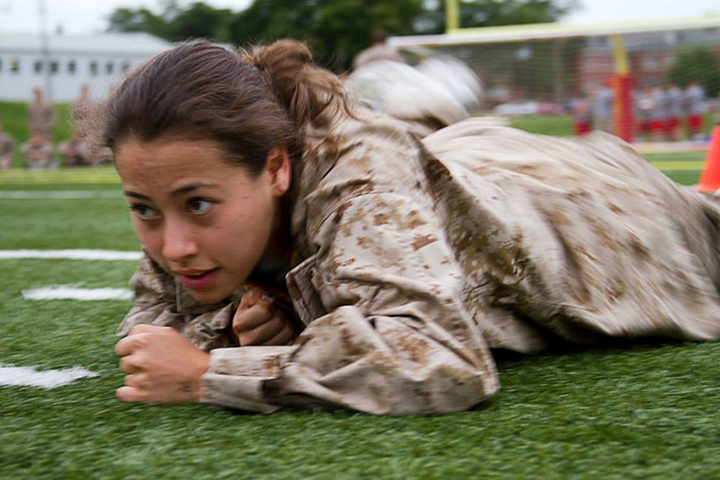Some kids go to summer camp to learn how to water ski or ride horses.
Others spend a week immersed in a variety of physical, mental, and ethical challenges to learn how to become community leaders.
Each summer, the U.S. Marine Corps Recruiting Command hosts a week-long Summer Leadership and Character Development Academy in Quantico, VA, where high school sophomores and juniors learn valuable life lessons from officers, notable leaders, entrepreneurs, Holocaust survivors, and others.
The academy is designed to introduce students to the Marine Corps’ core values of honor, courage, and commitment through ethical decision-making scenarios that Marines face in the real world, as well as daily physical and mental challenges aimed at developing strong character.
“The program is a leadership program that will teach young high school students how to be an integral part of their community,” Lt. Col. Sara McGrath said in a recent Marine Corps feature. “That could be their high school, town or city, or the college they attend. We will give students the opportunity to listen to Marines and community leaders, experience physical and mental challenges, and then form their own leadership style from these challenges.”
“This program allows students to experience a break from their normal life,” added Capt. Paul C. Shipley, acting platoon commander for the program. “It’s an acculturation process and the enthusiasm the students embrace the challenge with really helps them get through the week.”
The academy invites about 200 students each year through a competitive application process that rates applications based on academics, community service work, leadership traits, moral and ethical standards, and performance on an “Initial Strength Test.”
“I believe the students most enjoy the physical aspects of the program,” said Staff Sgt. Cathleen Barsallo, a platoon sergeant. “The students seem to be most active during the obstacle courses, confidence course, morning physical training and leadership reaction course.”
The camp culminates with a graduation for those who complete all the events successfully, “but this is just the beginning,” according to the SLCDA website.
“The goal of the SLCDA is to return students back to their communities more confident, selfless and better equipped to improve the lives of those around them.”
It certainly seems like a recipe for success.
University of Virginia sociologist James Davison Hunter noted in The Death of Character : “It is precisely these kinds of social worlds, defined by a clear and intelligible understanding of public and private good mediated consistently through integrated social networks of adult authority, that moral instruction has its most enduring effects on young people.”
Students long for the kind of structured social world the SLCDA provides.
In a 2017 Tedx talk, high schooler Virginia Cobbs questioned why her school doesn’t focus on character like summer camp does. She knows that organizations tasked with forming youth must focus on character, and the best schools are creating structured social worlds for their students.


